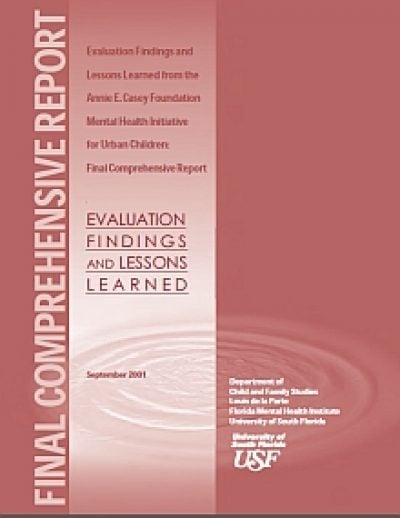Startling Stat
Approximately 20% of all children have a diagnosable mental disorder.

This report provides a global perspective on the evaluation findings of the Casey Foundation’s five-year Mental Health Initiative (MHI) for Urban Children, implemented in the early 1990s. The MHI created new ways of delivering culturally appropriate, family-focused mental health services to children in high poverty, urban communities, and worked with states to improve the policies and practices supporting these services. The report details background information, describes the three main components of the initiative, and provides a summary of the major accomplishments and challenges experienced in systems reform, governance and service delivery. A final commentary discusses the implications on future national, multisite, multifaceted initiatives.
While the experience of the Mental Health Initiative was not described as discouraging, the evaluation reflected the immense effort it takes to build the trusted partnerships needed in bringing about long-term community change. The experience reinforces that this is an extremely complex undertaking. It also emphasizes the need to devote considerable time to developing, maintaining and re-establishing these working relationships and partnerships.